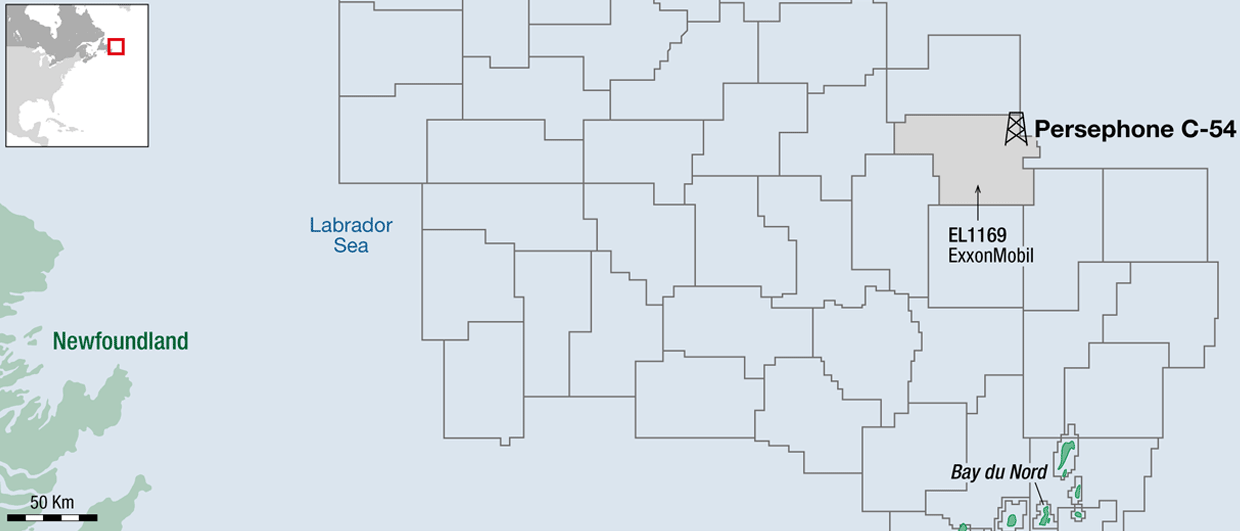ExxonMobil, with partner QatarEnergy, is drilling the Persephone (C-54) wildcat offshore Canada’s Labrador and Newfoundland coast. This new frontier wildcat is testing a number of conventional clastic reservoirs in rifted fault blocks of the Upper Jurassic within the Orphan Basin. Further potential may exist within large carbonate platforms within these syn-rift blocks, as well as a substantial syn-rift Lower Cretaceous and post-rift Late Cretaceous sections.
The play is around 275 km north of the Flemish Pass/Bay du Nord area, where Equinor produces from the Nova, White Rose and Hebron fields. These oil fields have proved up the Upper Jurassic/Early Cretaceous syn-rift clastic play. A number of wells have tested good Jurassic sands in the basin, with Cupids A33 (Equinor, 2015) reporting oil shows about 80 km to the southeast. Bp (with Hess and Chevron) notably drilled the dry Ephesus well 230 km to the west in 2023, targeting an amplitude supported Eocene sand. Deeper Cretaceous targets were not reached and the group quit the area soon after.
Persephone was spud on 24 May 2024 by the Stena Drillmax drillship. The well, in License 1169, is in a staggering 2970 m water depth, with a prognosed TD of up to 6,500 m to reach the Jurassic targets. The prospect is said to hold up to 3 BBO unrisked prospective in place resources, although the operator has not reported on the targeted reserves numbers. ExxonMobil and QatarEnergy took the block in January 2023 with a bid of C$181.5m.
Whilst the Persephone well would extend this rifted margin play to the north, with huge follow-on potential in unlicensed acreage around the well, the area remains remote and subject to the high cost of frontier development in deep water. Equinor and bp have delayed the Bay du Nord development to the south (Flemish Pass basin) by three years to 2026 on the back of these commercial concerns.


